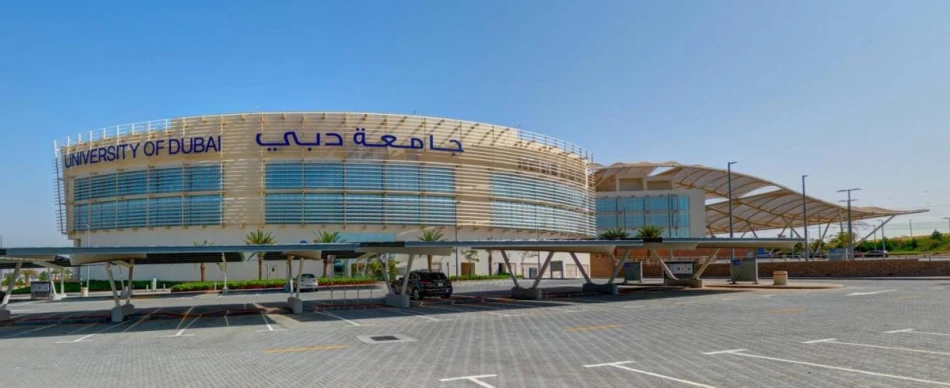
Dubai University Welcomes Students as New Academic Year Begins
Dubai University Kicks Off Academic Year with Record International Diversity
Dubai University has commenced its new academic year with students from 48 nationalities enrolling across its undergraduate and graduate programs, reflecting the UAE's growing position as a global education hub. The institution's diverse student body underscores Dubai's strategic push to attract international talent and establish itself as a knowledge economy leader in the Middle East.
Academic Programs Drive Regional Competitiveness
The university launched classes across its three main colleges: Dubai Business School, the College of Engineering and Information Technology, and the College of Law. Notably, the institution has expanded its graduate offerings with new Master's programs in Data Science and Cybersecurity—fields that align directly with the UAE's National Strategy for Advanced Innovation and its ambitious Vision 2071 goals.
Strategic Focus on Emerging Technologies
The emphasis on cybersecurity and data science programs positions Dubai University at the forefront of addressing critical skills gaps in the region. As the UAE accelerates its digital transformation initiatives and positions itself as a global fintech and technology hub, these specialized programs could supply the technical workforce needed to support sectors ranging from smart city development to financial services innovation.
International Student Magnet Reflects Broader UAE Strategy
University President Dr. Issa Al Bastaki highlighted that the institution's international appeal stems from its established reputation and the UAE's culture of tolerance and coexistence. This diversity isn't coincidental—it mirrors the UAE's broader economic strategy of attracting global talent through initiatives like the Golden Visa program and various residency reforms.
Competing with Regional Education Hubs
Dubai's educational expansion puts it in direct competition with other regional knowledge centers like Qatar's Education City and Saudi Arabia's NEOM university projects. However, Dubai's advantage lies in its established business ecosystem and multicultural environment, which provides students with immediate access to internships and career opportunities across diverse industries.
Market Implications for Education Sector Growth
The strong enrollment figures suggest robust demand for higher education in the Gulf region, particularly in technology-focused disciplines. For investors, this trend indicates potential opportunities in educational technology, campus infrastructure development, and specialized training programs that bridge academia and industry needs.
The university's focus on international standards and accreditation also signals the UAE's commitment to educational quality—a crucial factor for attracting multinational corporations seeking skilled graduates for their regional operations.
Most Viewed News

 Omar Rahman
Omar Rahman






